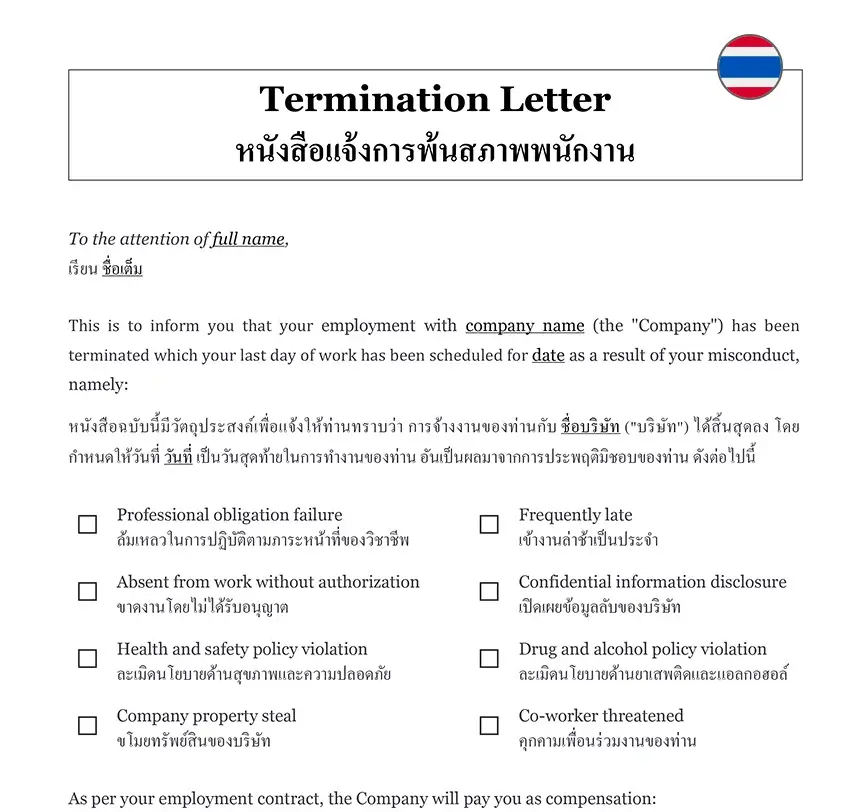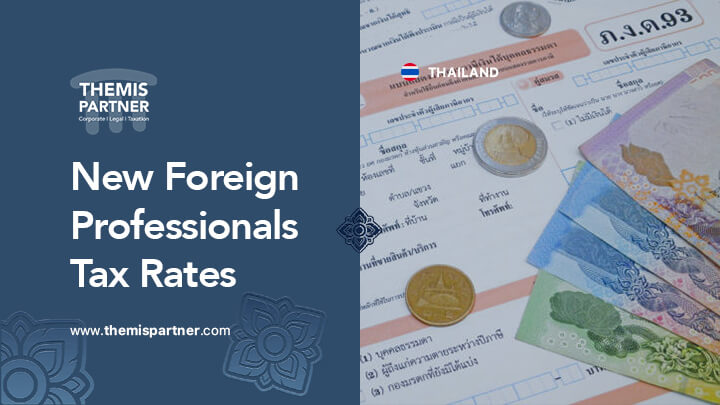Fair Dismissal
There is a distinction between termination of employment with and without cause, as well as termination that is fair and unfair. Because the terms “fair” and “unfair” terminations are not defined in Thai labor law, their meanings are interpreted by the courts based on the facts and evidence presented in each case.
1. Termination of employment with cause
Termination of employment without cause is only permitted in limited circumstances. Reasons for terminating an employee with cause include:
| ➤ Falsely performing duties or committing a criminal offense against the employer |
| ➤ Intentionally causing harm to the employer |
| ➤ Negligently causing significant harm to the employer |
| ➤ Violating the employer's work rules and regulations or lawful working orders, despite receiving an employee warning letter for the same offense within the previous 12 months (for serious cases, the requirement of a written warning does not apply) |
| ➤ Leaving work without justification for three consecutive working days, whether or not a holiday is taken in between |
| ➤ Being sentenced to imprisonment by a final court decision. If the offence is committed through negligence or is a minor offense, it must be a case in which the employer suffers loss or damage. (Labour Protection Act, Section 119) |












